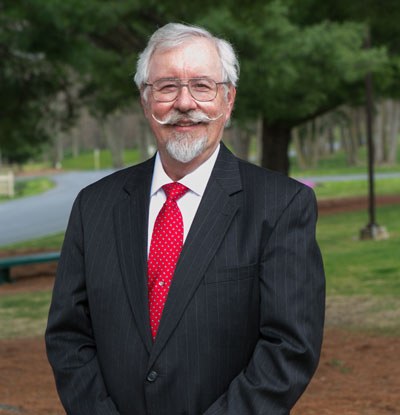B.S. Forest Science, 1970

Richard W. Guldin
Richard W. Guldin completed a B.S. in Forest Science in 1970 and then joined the U.S. Army. As a result of his strong academic record, he was posted to the Office of the Chief of Engineers, Corps of Engineers in Washington, DC. He served four years on a team responsible for planning regional wastewater management solutions to urban water pollution problems, which included options for spraying secondary effluent on forests and cropland. His experience with the Sopper-Kardos project at Penn State during his undergraduate studies--aimed at keeping Spring Creek pristine--was a great help to him. He helped draft Section 208 of Public Law 92-500, focusing on area-wide wastewater management planning and the use of silvicultural options, including spray irrigation of forests as an alternative to sewage treatment plant expansion.
After completing an M.S. (1976) and Ph.D. (1979) in forest economics and policy from Yale, Rich started his Forest Service career as a research forester with the Forest Economics and Policy research unit in the Southern Forest Experiment Station in New Orleans, LA, with an emphasis on economics of forest regeneration, risk of insect attack, and international trade in southern forest products.
In 1985, Rich moved to the Washington Office of the agency to work on the 1989 RPA Assessment and as National Program Leader for Forest Inventory, Economics, and Recreation Research in the R&D Deputy Chief's office. In 1989, he also served nine months as the forestry expert on the U.S. Senate's Committee on Agriculture, Nutrition, and Forestry. From 1990 to 1992, he served as R&D Research Budget Coordinator in Washington, which expanded his relationships with stations across the country and with Congress.
Rich returned to Pennsylvania and served as Assistant Station Director for the Northeastern Forest Experiment Station in Radnor, 1992-1996, where he led 10 research units in New England and established a new research unit on Atlantic salmon restoration.
In 1996 Rich returned to Washington in the agency's Senior Executive Service, as Director of Quantitative Sciences. His primary responsibility nationally was for the Forest Inventory & Analysis (FIA) program--the nation's tree census. He led the transition of the FIA program from a periodic inventory to an annualized inventory, including development of new statistical procedures, aggressive new performance metrics, and greater financial transparency. He built stronger political support for the FIA program among NGOs, growing the program from $16 million annually (1996) to $70 million today. If you have used FIA data lately, thank Rich Guldin.
In 2002, Rich identified the need and chartered the National Research Council study on National Capacity in Forestry Research. In the late 1990s, he served as a technical advisor on the State Department team at international forestry negotiations on criteria and indicators for sustainable forests. In 2002, he represented the Forest Service on the Design Committee of the State of the Nation's Ecosystems report prepared by the H. John Heinz III Center for Science, Economics, and the Environment, and served as a member of the Forests Working Group. In 2003, Rich led the team that prepared the National Report on Sustainable Forests--2003 for the United States, in response to the Montreal Process Criteria and Indicators.
Rich has also been active in leadership of U.S. international forest policy and research activities through involvement with the International Union of Forest Research Organizations (IUFRO). He has chaired the IUFRO research group in Division 6 on Forest Policy, and was appointed Task Force Chair by the President of IUFRO to lead work on identifying better ways of bringing research results to policy deliberations. That led to three successful international workshops with 140 people involved; the United Nations Forum on Forests is using the results. As a culmination of his international activity with the Forest Service, Rich served as the Chair of the 2014 World Congress Organizing Committee. The IUFRO World Congress was held in October 2014 at Salt Lake City, Utah, concurrently with the 2014 National SAF Convention and drew over 3,500 people from the United States, Canada, and 100 other countries.
Rich is a Registered Forester in the state of Maryland and a Certified Forester with the Society of American Foresters (SAF). He chaired the Yale Student Chapter in the 1970s, Forest Economics and Policy Working Group of SAF in 1999-2000, and has been active in the National Capital Chapter of SAF.
Since his retirement from the Forest Service in January 2015, Rich has developed a consulting business focused on regional/national resource assessment and forest policy issues. He is the contributing lead author on land use and land cover changes in North America to the United Nations Environmental Programme's sixth Global Environmental Outlook (GEO6) report. He also remains active on projects for IUFRO, and pursues other work opportunities in the United States and abroad. Currently, he is Senior Research Fellow at the Society of American Foresters. He has also filled in on an interim basis as SAF's Managing Editor of the Journal of Forestry and Forest Science. Despite all this, he has found time to do more hunting and fly fishing, and building oak furniture. His heart remains in Pennsylvania, having bought his parent's cabin in the Poconos, which backs up on the 22,000 acres of State Game Land 127.
Department of Ecosystem Science and Management
- Office 814-865-7541
- Fax 814-865-3725
Department of Ecosystem Science and Management
- Office 814-865-7541
- Fax 814-865-3725

